Vayigash 2016 – Aged Wine or Split Beans
by devadmin | January 5, 2017 9:01 pm
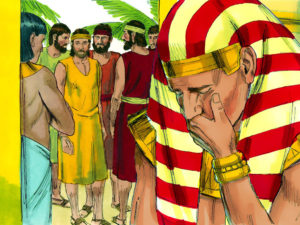 We begin with big and heartfelt mazel tov wishes to our friends Dassy and Steven Kwestel upon the wedding earlier this week of their son Avi, to Stephanie Miller, she the daughter of Penina and Elly Miller. Mazel tov to both extended families and may Stephanie and Avi merit to enjoy many decades of blissful marriage.
We begin with big and heartfelt mazel tov wishes to our friends Dassy and Steven Kwestel upon the wedding earlier this week of their son Avi, to Stephanie Miller, she the daughter of Penina and Elly Miller. Mazel tov to both extended families and may Stephanie and Avi merit to enjoy many decades of blissful marriage.
Raboyseyee and Ladies:
Aged Wine or Split Beans
HEADLINES:
YEHUDA CONFRONTS VICEROY- YOISEPH REVEALS HIMSELF (LITERALLY AS WELL) – FATHER AND SON REUNITE- 70 MEMBERS OF YAAKOV’S FAMILY, INCLUDING UNNAMED DAUGHTERS EMIGRATE TO MITZRAYIM- YEHUDA HAS FIVE SONS AND TWO GRANDSONS IN 22 YEARS – AND MUCH MORE
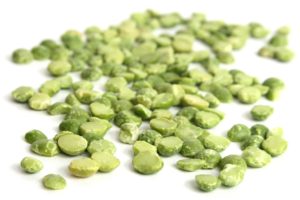 Beans, the experts tell us, provide myriad health benefits and they also fir into several different food groups. Though rich in carbs like breads and starches (and zicher cake and cookies), as a plant-based food, they fit comfortably as well in the vegetable group offering an array of vitamins, minerals and antioxidants. Moreover, they are also protein laden. Beans are also cholesterol free and provide little to no fat. More good news: Beans actually lower cholesterol and triglyceride levels.
Beans, the experts tell us, provide myriad health benefits and they also fir into several different food groups. Though rich in carbs like breads and starches (and zicher cake and cookies), as a plant-based food, they fit comfortably as well in the vegetable group offering an array of vitamins, minerals and antioxidants. Moreover, they are also protein laden. Beans are also cholesterol free and provide little to no fat. More good news: Beans actually lower cholesterol and triglyceride levels.
Ober, long before modern day nutritionists and others who dabble in this area, figured all this out, it was none other than Yoisef, he the master decipherer of dreams and master administrator over Paroy’s kingdom, who in this week’s parsha chapped the great value of split beans. We shall discuss this below, but firstly…..
Arguably one of the most emotional stories ever told, the Yoisef saga which has been the main story line for the last two parshas, continues. Get the tissues ready. The cathartic reunion between Yoisef and his brothers is coming to a shul near you. It’s high drama mamish. Even if you’re a cold hearted individual with ice running through your veins, Vayigash is the one parsha that will zicher give you the chills, efsher warm the cockles of your hearts, and maybe also have you choked up as Yoisef will, after taunting his brothers for a period of time, reveal himself and reconcile with the scoundrels…err, of course we meant, the holy brothers, that sold him into slavery 22 years ago. Did the Oisvorfer just call the brothers scoundrels when the heylige Gemora and the medrish refer to them as tzadikim and with even loftier appellations? He did; ober, it’s only to shock the system and get you thinking: what was so holy about these brothers? Were they indeed tzadikim? Where can we read about their good deeds and virtuous ways? Nowhere!
Why are they referred to as Shivtay Ko (the RBSO’s tribes)? And why did they merit having their names carved into the Choishen (Breastplate) that the kohain Godol (big Kihuna) wore as par part of his eight piece ensemble? Grada, earlier this week the Oisvorfer asked a rather intelligent rabbi these very questions. And his answer: he didn’t have one! He was mamish a shtikel stumped and admitted that we know kimat nothing about more than half of the brothers and what we know about the others is not very flattering. He’s indeed correct. There isn’t much, efsher not even one word in the heylige Toirah that tells us one good deed about any of the shevotim. Does one become holy by bedding his own father’s wife? If so, Reuvain was taka holy. Does one, or efsher two, become holy by killing all the -efsher innocent- inhabitants of the city of Shechem? If so, count Shimon and Levi in; they too were holy. And does one become holy because it was davka his bright idea to sell -instead of killing- his own brother into slavery, and then asking his own father to recognize a bloody tunic which caused his father to then think that taka his son was dead? If so, we need to agree: Yehudah too was holy. He was efsher holier than the rest because he had committed a prior ‘holy act’ when after bedding Tamar roadside -of course while under the impression that she was a harlot, yet another holy act- and after condemning her to death for adultery, at the last second fessed up and accepted responsibility. Mamish virtuous!
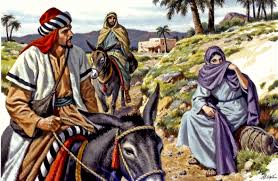 And were the others who all joined the conspiracy and continued the cover up to their father for over twenty years, holy? Hec, they didn’t even attend the famous Sheym & Eyver yeshiva! Efsher we can kler and it’s taka emes that Yehuda did tshuva (repented) and maybe Reuvain as well but the others, ver veyst? Is saying you’re sorry after being exposed and exposed to, as we will soon read, after 22 years, enough? Then again, who are we to judge? Do you want the RBSO judging you? If the RBSO selected their names to adorn the Koihain’s wardrobe, it’s none of your business why. Veyter and let’s move on.
And were the others who all joined the conspiracy and continued the cover up to their father for over twenty years, holy? Hec, they didn’t even attend the famous Sheym & Eyver yeshiva! Efsher we can kler and it’s taka emes that Yehuda did tshuva (repented) and maybe Reuvain as well but the others, ver veyst? Is saying you’re sorry after being exposed and exposed to, as we will soon read, after 22 years, enough? Then again, who are we to judge? Do you want the RBSO judging you? If the RBSO selected their names to adorn the Koihain’s wardrobe, it’s none of your business why. Veyter and let’s move on.
In advance of the reunion and under Paroy’s specific instructions, Yoisef loaded up his brothers will all sort of goodies including wagons (to transport the family back), changes of clothing and food items. Specifically for his father whom he had not seen or spoken to in 22 years, Yoisef sent ten donkeys laden with ‘the best Mitzrayim had to offer,’ along with ten she- donkeys laden with grain, bread and food.
Nu, after delineating the various items he sent for his father, Rashi and a few others were wondering what the words ‘Mituv Mitzrayim’ meant. Says Rashi (Bereishis 45:23) quoting the heylige Gemora (Migilah 19), azoy: he sent him aged wine. Why old wine? Because old people enjoy drinking aged wine. And says the Maharsha on the heylige Gemora (Migilah 16b) azoy: aged wine is enjoyed by older people because they tend to get cold, and wine warms them up. Shoin, wine it was. Was it? Ober did Yoisef have access to kosher wine? Was he also now a vintner? Did he even keep kosher? Let’s recall that he was married to a shiksa. Even if he did not, and avada we will give him a pass, given that he was enslaved and in prison for at least twelve years, where mistama they did not have a qualified vendor to deliver such meals, and was also away from a kosher home -however that manifested itself in the Yaakov household for over two decades- ober, how could Yoisef send non-kosher aged wine to his father, who -according to some- observed the entire Toirah kulah (entire Toirah)? How? Ver veyst? Mistama this question also bothered Rashi which prompted him to offer us more food for thought, this time in the form of split beans.
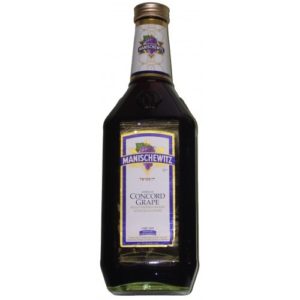 Rashi, seemingly not totally convinced that Yoisef sent his father wine, then quotes a medrish (Bereishis Rabba 94b) which tells us that Yoisef did not send his dad aged wine. Instead he sent him split beans. Why split beans? Another medrish tells us that split beans were beneficial for relaxing a person’s spirits. Nu, who knew that beans have such calming affects on people? Says the heylige Gemora (Yirushalmi Yoma 1:4) azoy: On the eve of Yom Kippur, the Koihen Godol was forbidden from eating split beans. Why? Because split beans induce sleep. Shoin. No beans for him! Says the medrish (Divrei Dovid) that the split beans found in Mitzrayim did in fact have calming properties. They were used to clam people with worries. Ober, what worries would Yaakov have once he received word and was to be convinced that the brothers were (finally) speaking the emes, and that Yoisef was alive and well? Says the medrish: not to worry. In this case, the split beans also help people fall asleep. Nu, while the heylige Gemora has differing opinions on whether or not beans are good for the spirits, kimat all will agree that a healthy serving of beans -of kimat every variety- will have less than a calming effect on one’s eco-system. Perhaps the beans were meant for the animals to make them run faster, ver veyst. Whether the beans helped relax Yaakov or put him to sleep we don’t know. What we do know is that the topic is discussed and argued over. And why not? It’s the heylige Gemora, where everything is discussed and argued over, including the potential calming effects of beans.
Rashi, seemingly not totally convinced that Yoisef sent his father wine, then quotes a medrish (Bereishis Rabba 94b) which tells us that Yoisef did not send his dad aged wine. Instead he sent him split beans. Why split beans? Another medrish tells us that split beans were beneficial for relaxing a person’s spirits. Nu, who knew that beans have such calming affects on people? Says the heylige Gemora (Yirushalmi Yoma 1:4) azoy: On the eve of Yom Kippur, the Koihen Godol was forbidden from eating split beans. Why? Because split beans induce sleep. Shoin. No beans for him! Says the medrish (Divrei Dovid) that the split beans found in Mitzrayim did in fact have calming properties. They were used to clam people with worries. Ober, what worries would Yaakov have once he received word and was to be convinced that the brothers were (finally) speaking the emes, and that Yoisef was alive and well? Says the medrish: not to worry. In this case, the split beans also help people fall asleep. Nu, while the heylige Gemora has differing opinions on whether or not beans are good for the spirits, kimat all will agree that a healthy serving of beans -of kimat every variety- will have less than a calming effect on one’s eco-system. Perhaps the beans were meant for the animals to make them run faster, ver veyst. Whether the beans helped relax Yaakov or put him to sleep we don’t know. What we do know is that the topic is discussed and argued over. And why not? It’s the heylige Gemora, where everything is discussed and argued over, including the potential calming effects of beans.
Speaking of family reunions, Vayigash offers two: of course nothing can compare to the drama of Yoisef shocking his brothers by pulling his pants down for a quick look/see to show them that he was indeed their brother but it could be argued that the reunion between father and son – Yaakov and Yoisef- after 22 years of separation during which the father may have thought that his favorite son was long dead, deserves a good cry and honorable mention for being the second most emotional reunion in the gantze Toirah, mamish. Stop!! Did we just read that Yoisef pulled his pants down to prove his identity? We did! Not just this hoizen but also the gatchkis and showed them his royal package in order to prove to them beyond the shadow of a doubt that he was circumcised, Jewish, and their brother. Shoin! At least he didn’t make them swear by holding on or grabbing his mila, if you chap. Nu, before passports and a valid driver’s license, seemingly this was a credible way to prove ID. And of course now you chap, why Broadway productions have been written, why sleep away camps put this show on from time to time and why people love to discuss Yoisef: he is after all a very likable and easy to identify with character. He has suffered mightily, he has survived, he has overcome and he is now also a hero to all.
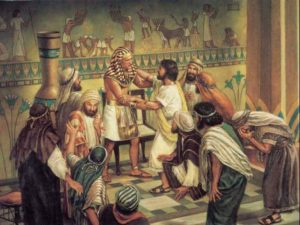 Raboyseyee, Vayigash has so much more to discuss; let’s begin with a question that has been on the mind of many commentators: Why didn’t Yoisef find a way to let his father know he was alive as soon as he was able to do so? How could he have allowed his father to nebech mourn him for so long? Couldn’t Yoisef have dispatched a courier to his father with the good news that he was alive and well? It’s one thing to give up one’s cell phone or other smart device while ruling, ober, why not send a messenger by donkey or camel? Mamish gornisht?! Is this how a ‘tzadik’ behaves?
Raboyseyee, Vayigash has so much more to discuss; let’s begin with a question that has been on the mind of many commentators: Why didn’t Yoisef find a way to let his father know he was alive as soon as he was able to do so? How could he have allowed his father to nebech mourn him for so long? Couldn’t Yoisef have dispatched a courier to his father with the good news that he was alive and well? It’s one thing to give up one’s cell phone or other smart device while ruling, ober, why not send a messenger by donkey or camel? Mamish gornisht?! Is this how a ‘tzadik’ behaves?
Of course we all chap that it was mistama impossible to send a cable while in prison and we mostly agree that he was there for 12 years. We’ll also take off a year while he was being transported to Mitzrayim after being sold by his wonderful and loving brothers and also some time while he was a slave to Potiphar and Mrs. Potiphar. Efsher he was too busy warding off their advances and had no time to put pen to paper. Ober we also established that he had been free at least nine years before the reunion. Nine years? Nu, following his release, he predicted seven good years and those passed. He also predicted seven bad years and according to many, but not most, two of those years passed. If you do the simple math, you will find that Yoisef had at least nine years during which he could easily have notified his dad that he was alive and well and in fact flourishing. What’s taka pshat? And taka says the RambaN (Bereishis 42:9). “Mitzrayim (Egypt) is only a six-day journey to Chevroin. Respect for his father would have justified even a year’s journey!” Why didn’t he tell his father not only that he was alive and well, but that he was Second in Command in Egypt? That is surely something to write home about. Excellent point! Nu, as you can only imagine, many proffer theories on why, let’s explore a few.
Says the RambaN answering his own question: Yoisef could not contact Yaakov until the dreams of his youth had come true. Yoisef had dreamt that his brothers would one day bow to him, and his revelation of this dream had set off the brothers’ jealous rage which led to his eventual sale into slavery. Only when the dream came true could Yoisef be vindicated and reveal himself. As you can imagine, not everyone was happy with RambaN’s answer and some suggest that this cannot be the case because dreams are in the domain of the RBSO. It is man’s job to do that which is ethical, and the ethical thing for Yoisef would have been to inform his father Yaakov that he was alive and well. Shoin: guilty as charged.
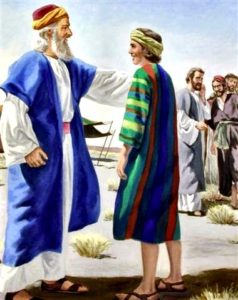 On the other hand…………..efsher we can klerr that Yoisef had no way of knowing that his father thought he was dead. He didn’t know the bs story his brothers had concocted in their cover-up. Was Yoisef feeling abandoned by his own father? Efsher he was; efsher he was klerring, why hasn’t my father come looking for me? Egypt is not so far away. Or, he might have been asking himself azoy: Why did my father send me out to look for my brothers in the first place? Didn’t he know that they hated me? Couldn’t he have foreseen the potential danger this might put me into? Efsher he was klerring that his own father set him up to cast him out of the family. Hey, wasn’t there precedence for just such activity in the mishpocho? Didn’t zeyda Avrohom cast Yishmoel out? Wasn’t Eisav rejected while my own father was accepted? Or, efsher he thought that with his mother now dead, that his tanta (Aunt) and also stepmother Leah was behind the move to get rid of him. Any of these theories might have been jumping around in his mind during his years of captivity in some form or another. Should we blame the victim? If Yoisef came to the conclusion that his father was involved in the plot and based on all these possible motives, should we lay blame at his feet? Veyter.
On the other hand…………..efsher we can klerr that Yoisef had no way of knowing that his father thought he was dead. He didn’t know the bs story his brothers had concocted in their cover-up. Was Yoisef feeling abandoned by his own father? Efsher he was; efsher he was klerring, why hasn’t my father come looking for me? Egypt is not so far away. Or, he might have been asking himself azoy: Why did my father send me out to look for my brothers in the first place? Didn’t he know that they hated me? Couldn’t he have foreseen the potential danger this might put me into? Efsher he was klerring that his own father set him up to cast him out of the family. Hey, wasn’t there precedence for just such activity in the mishpocho? Didn’t zeyda Avrohom cast Yishmoel out? Wasn’t Eisav rejected while my own father was accepted? Or, efsher he thought that with his mother now dead, that his tanta (Aunt) and also stepmother Leah was behind the move to get rid of him. Any of these theories might have been jumping around in his mind during his years of captivity in some form or another. Should we blame the victim? If Yoisef came to the conclusion that his father was involved in the plot and based on all these possible motives, should we lay blame at his feet? Veyter.
Sometime after the reunion, the holy brothers came to the conclusion that they may have been wrong. Says the heylige Toirah (42:21): Vayoimru Ish El Ochiv, Avol Asheimim Anachnu Al Ochinu. “The brothers said to each other, ‘we have sinned regarding our brother’.”
You think!? After twenty-two years, they began to realize they were wrong? Efsher we can ask: what the hec were they thinking for two plus decades? Was there any scenario in the world that would have allowed them to plot a murder against their own brother and continue the conspiracy after selling him into slavery for 22 years? Does it not boggle the mind? They let their father nebech mourn all this time. Unthinkable mamish! We taka read that Yaakov refused any consolation. Ober listen to this: says the Tana Dvei Eliyahu, “it was not over Yoisef that Yaakov was crying. Yaakov was afraid that perhaps he was liable for marrying two sisters, or maybe he had derived pleasure from Lavan’s money, or maybe he had derived pleasure from Shchem’s money thereby desecrating the covenant with the RBSO.” How could the brothers stand by and let their father suffer from guilt pangs as well? What kind of people were they? Seemingly the good Tana forgot that Yaakov also married two other sisters, these two were the half-sisters of the first two.
Answers are hard to come by but that doesn’t mean the Medrish and many others haven’t valiantly tried. Seemingly we have to accept that they were convinced they did no wrong. Moreover had they at all felt bad or guilty, we can kler that they themselves would have gone looking for their brother. And says Rashi: as part of the massive cover-up, the shevatim included the RBSO in their quorum by excommunicating anyone who would reveal the truth about what happened to Yoisef. They made the RBSO a co-conspirator? Shreklich; unthinkable and unacceptable. Ober it appears that the RBSO did His part: He did not out them, did not reveal their secret to Yaakov. As the Oisvorfer has told you over and again: we have to accept that this entire sale was part of the RBSO’s master plan. Isn’t everything? They were just pawns in the operation. They did their part. As the Oisvorfer’s good friend always states over and again: “der abishter firt de velt” (the RBSO runs the world).
On the other hand, if the shevotim had clean hands and consciences about their actions, what changed after 22 years? Says the Shem M’shmuel: the brothers suffering (at the hands of Yoisef) purified their minds and enabled them to realize their mistaken ways. And taka says the heylige Gemora (Berochois): suffering cleanses a person from his sins. A body becomes soiled from sin, and through pain and affliction it becomes purified and radiant. In other words: Yoisef’s antics which included having Shimon locked up and framing his little brother Binyomin with the stolen goblet, were all designed to help them see the light. Says Rabbi Lopian (whoever he is): through suffering, the mind too becomes clearer and enlightened, and one can understand matters that had previously been unperceivable. With their purified bodies and minds, they once again reviewed all their deeds and were able to say, “Avol asheimim anachnu,” we have sinned. Gishmak.
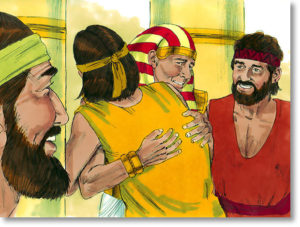 A few weeks back as the Yoisef saga began to unfold, we read this possik (verse) in parshas Vayeshev (Bereishis 37:35): “All his sons and daughters sought to comfort him.” At that point, early in the story, Yaakov could not be consoled. Yoisef was gone and the brothers told their father he was dead. Let’s remember those daughters mentioned and let’s roll forward to our parsha where we learn this possik (Bereishis 46:7):
A few weeks back as the Yoisef saga began to unfold, we read this possik (verse) in parshas Vayeshev (Bereishis 37:35): “All his sons and daughters sought to comfort him.” At that point, early in the story, Yaakov could not be consoled. Yoisef was gone and the brothers told their father he was dead. Let’s remember those daughters mentioned and let’s roll forward to our parsha where we learn this possik (Bereishis 46:7):
| ז בָּנָיו וּבְנֵי בָנָיו, אִתּוֹ, בְּנֹתָיו וּבְנוֹת בָּנָיו, וְכָל-זַרְעוֹ–הֵבִיא אִתּוֹ, מִצְרָיְמָה. {ס} | 7 his sons, and his sons’ sons with him, his daughters, and his sons’ daughters, and all his seed brought he with him into Egypt. |
Yaakov had more daughters other than the famous Dina whose sad story we read a few weeks ago? Who were they and why are they not mentioned in the heylige Toirah. Were Yaakov’s other daughters not worthy of a Toirah shout-out? Gornisht (nothing)? So we ask again: Who were Yaakov’s daughters and granddaughters? It’s epes mashma (appears) from the quoted pisukim that Yaakov had sons, grandsons, daughters -at least more than one- and granddaughters. Ober if we take a count of the bodies that Yaakov brought with him to Mitzrayim – also in this week’s parsha, we will find but one daughter delineated by name. Dina and but one granddaughter, she the famous Serach bas Osher (daughter of Asher) who never died. Nu, her story for another day.
So, we ask again which was it? One daughter and granddaughter, or many? The pisukim don’t match up. Ober not to worry because says Ibn Ezra azoy: the word “daughters” refers to all of Yaakov’s female progeny. Ober if daughters mean all, why would the heylige Toirah in the possik above; separately delineate daughters and then granddaughters as those who accompanied Yaakov on his resettlement journey into Mitzrayim? Nu, not to worry because who says that what Ibn Ezra said in one possik has to necessarily match what he says in a second possik? No one! Shoin and says the very same person azoy: His daughters — consisted only of Dina. Perhaps Dina had some young maidservants who grew up with her, and for the sake of his daughter Scripture referred to them as Yaakov’s daughters.
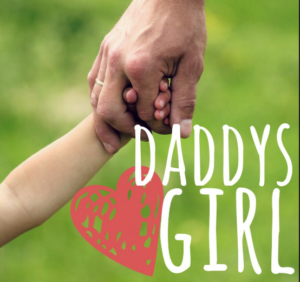 Says the Medrish: that the term “His daughters,” – refers only to Dina: in other words, he had only daughter. And the term “his granddaughters” this refers to Serach: only one granddaughter went on the trip. Ober listen to this bombshell! Efsher you’re wondering who the heylige shevotim married? And soon you’ll see -so gishmak mamish- how the Oisvorfer will tie all this together. We know that Yehuda married an unnamed Canaanite shiksa and we know that Yoisef married Osnas, yet another shiksa ober who did the boys marry and why is this relevant? Were their wives Jewish?
Says the Medrish: that the term “His daughters,” – refers only to Dina: in other words, he had only daughter. And the term “his granddaughters” this refers to Serach: only one granddaughter went on the trip. Ober listen to this bombshell! Efsher you’re wondering who the heylige shevotim married? And soon you’ll see -so gishmak mamish- how the Oisvorfer will tie all this together. We know that Yehuda married an unnamed Canaanite shiksa and we know that Yoisef married Osnas, yet another shiksa ober who did the boys marry and why is this relevant? Were their wives Jewish?
Says Rashi and halt kup here, azoy: who they married is a machloikes (disagreement) between Rebbe Yehuda (not the Yehuda in our story) and Rebbe Nechemia. Said Rebbe Yehuda: Twin sisters were born to each and every one of the boys (Yaakov’s sons) and it was them, those twin girls, whom the boys married. They married their own sisters? OMG and quite shreklich! So much for Yaakov’s boys observing the entire Toirah kulah. And Yaakov allowed these marriages? Ober said Rebbe Nechemia: not to worry, they would never marry their own sisters. Banish the thought. The boys married shiksa Canaanite (Canaanite) meydlich. And where the possik reads “all his daughters” it really means none other than his daughters-in-law, since a person may call his son-in-law “son” and his daughter-in-law, “daughter.” Seemingly, even if they are not Jewish. Noch a mol (one more time) Again: Rebbe Yehuda says Yaakov had 12 daughters, Rebbe Nechemia says he had but one and a bunch of shiksa daughters-in-law! Let’s go further.
Says the RambaN (Bereishis 38:2): to make these unions somewhat less offensive, “the sons of Leah would have to marry the twin sisters of the six other tribes, and those tribes, their twins,” so that each would marry a sister by their father and then such marriages would not be forbidden to descendants of Noaich. How do you like that?
Ober according to Rebbe Yehuda who suggests that the boys had twin sisters and taka married them, what happened to them and why are they not named or counted among the 70 that went to Mitzrayim with Yaakov? Says he: all of the women died: finished and kaput before their father moved the family. Notwithstanding the fact that Yaakov’s sons were about forty years of age at this time, and being twins, the girls would have been the same age, seemingly all of the women perished! Oy vey!
Though this may seem somewhat farfetched and statistically improbable, avada we have to at least appreciate the effort and thought process. It is possible? Ver veyst. It seems somewhat unlikely that among seventy souls, sixty-eight were male and only two were female. Did Yaakov’s sons only beget males? And if they taka all died, may we assume that Yaakov’s grandchildren all married Egyptian girls? Ver veyst?
More to think about: the heylige Toirah records the lineage of the son of an Egyptian man and an Israelite woman (Vayikra 24:10). Ober if all of the children of Israel were in fact descended from Egyptian women, then what would have made that case so exceptional? Is the difference between an Egyptian mother and an Egyptian father so significant? Ver veyst?
 Ober said Rebbe Yehuda: Yaakov’s sons married their twin sisters. And why is he so sure? Because, in his opinion, it was unthinkable that they might marry shiksa Canaanite women. Ober because Rashi and Targum Yoinoson could not fathom that Yehuda would do such a dastardly act as marrying a Canaanite girl, they came up with a solution: Canaanite does not mean mamish a shiksa from Canaan. Instead the word means ‘merchant.’ And didn’t Tamar have a roadside gisheft (little business) and didn’t she taka demand payment up front before rendering such services? She did! Sounds like she was taka a merchant. Moreover, add the RambaN: Tamar may not have been a shiksa Canaanite girl after all. And how is this possible?
Ober said Rebbe Yehuda: Yaakov’s sons married their twin sisters. And why is he so sure? Because, in his opinion, it was unthinkable that they might marry shiksa Canaanite women. Ober because Rashi and Targum Yoinoson could not fathom that Yehuda would do such a dastardly act as marrying a Canaanite girl, they came up with a solution: Canaanite does not mean mamish a shiksa from Canaan. Instead the word means ‘merchant.’ And didn’t Tamar have a roadside gisheft (little business) and didn’t she taka demand payment up front before rendering such services? She did! Sounds like she was taka a merchant. Moreover, add the RambaN: Tamar may not have been a shiksa Canaanite girl after all. And how is this possible?
Listen to this theory: Tamar was the daughter of one of the residents of the land, ober not the daughter of a man with Canaanite affiliation, for it is unspeakable that Dovid Hamelech (King David) and eventually our Moshiach would come from the seed of the accursed slave, Canaan. And says the Medrish (Bereishis Rabbah 85.10) azoy: Tamar was the daughter of Shaim (son of Noaich). The bottom line: according to the heylige Toirah, she was a Canaanite ober according to the Medrish, se was either a merchant, a Jewish merchant or just plain Jewish, ver veyst. Then again, didn’t we long ago establish that Sheym ben Noiach was also not Jewish? We did!
Among the 70 that made the trip, we will also meet another interesting couple: Seemingly Yaakov’s son Shimon, he of Shimon and Levi fame that wiped out the entire city of Shechem at the tender age of 13, hooked up or maybe also married yet another Canaanite meydil who goes nameless in the heylige Toirah. Let’s learn the possik (Bereishis 46:10): “Shimon’s sons: … and Shaul the son of a Canaanite woman.” Says Targum Yoinoson: Shaul was the same as Zimri, the one who did the work of the Canaanites at Shittim [not real work of course but illicit relations with Kozbi, a Canaanite]. Keep your pants on; we’ll cover that in the summer. Just another example of an unnamed party.
And the bottom line: many medroshim are of the opinion that Yaakov indeed had other daughters. How many, ver veyst? Twins, ver veyst? We can klerr that Dina was named because of her abduction, rape and torture by Shechem, that minuvil and the Shimon and Levi story that ensued. In other words: Dina laid the foundation, if you chap, so that we would hear about the brothers and ultimately this story would again be referenced when Yaakov, in next week’s parsha, will bring it up to them and tell them why there were not getting his final blessings. And so says Ibn Caspi. Serach, as we mentioned above, was counted because she would play a pivotal role in keeping her Zeyda Yaakov grounded and safe. Says the medrish: for everywhere in recounting the history of our early generations, the heylige Toirah mentions only the males and those females to whom some noteworthy events occurred or who were themselves famous in one way or another. Dina certainly fit the bill.
Seemingly, Yaakov and his sons undoubtedly had other daughters, but they were not included in the count of seventy persons because they married their nephews and cousins, twins or whomever. They were included with the “wives of Yaakov’s sons” who were not included in the tally. Some say that Dina and Serach were counted because – and listen to this bombshell- they did not marry any of the twins and stayed single. And some say that the heylige Toirah only named the boys because they were destined to become the shivtay Ko, the RBSO’s holy tribes. One cannot fight destiny!
Did you see the headline about Yehuda having five kids and two eyniklich (grandsons) in 22 years? How is that possible? Nu, let’s remember that when it comes to medrish, everything goes and all is possible: dead people come to life and much more. Let’s stay focused on Yehuda. Efsher you recall that two weeks back, we read -mamish in the middle of the Yoisef saga- that Yehuda married a shiksa Canaanite girl, hopefully a pretty one and sired three boys. If you forgot, check out chapter 38. And zicher you recall that the RBSO did not like the two older boys because they were sloppy and spilled seed on the floor. With one son left, he married Tamar (after impregnating her) and had two other kids. Shoin, with her he had Zorach and Peretz, a real set of twins. Peretz quickly grew up, married, and fathered Chetzroin and Chamul who were among those who were counted as descending to Mitzrayim. In other words, during the course of twenty two years, three generations were born to Yehuda and came of age. And let’s not forget the ‘many days’ that Tamar waited in vain for the levirate marriage to take place.
Efsher you’re scratching your heads and wondering how all this could take place in 22 years. Could it? Nu, zicher that depends on which medrish talks to you, ober, what has this to do with our current parsha? Nu, listen to this amazing tale.
Says the very creative Avraham Ibn Ezra: the events surrounding Tamar and Yehuda actually transpired many years before the sale of Yoisef, and that the heylige Toirah recorded these events out of strict chronological sequence. Ober Rashi and who knew better, echoing the Chizkuni says: the pisukim discussing Yehuda’s mishpocho are in fact recorded in their correct order. He suggests that earlier generations had children at a very young age. How young? Says the heylige Gemora (Sanhedrin 69b) azoy: seven years old. They gave birth at seven? All of a sudden Rivka marrying at three doesn’t sound so giferlich. And says the Seder Oilom: Yehuda’s sons married very young, and died at the age of nine. OMG!
Based on the Chizkuni’s thinking, we will have to assume that there were three consecutive generations of childbearing at the age of seven. Avada this is quite strange because the generation immediately preceding and succeeding this anomaly clearly did not follow this pattern. Yaakov, by way of example, had Yehuda at the age of about eighty, and Chetzroin begat Kolev (Kolev ben Yefuneh) at about the age of one hundred and seventy. How then is it possible that punkt (specifically) three generations of the Yehuda mishpocho were compressed into a period of twenty-two years? Super seed? Ver veyst and maybe that’s why the RBSO was so upset with Eyr and Oinon: super seed should not be spilled in vain, if you chap.
A gittin Shabbis.
Yitz Grossman
The Oisvorfer Ruv
Source URL: https://oisvorfer.com/vayigash-2016-aged-wine-or-split-beans/